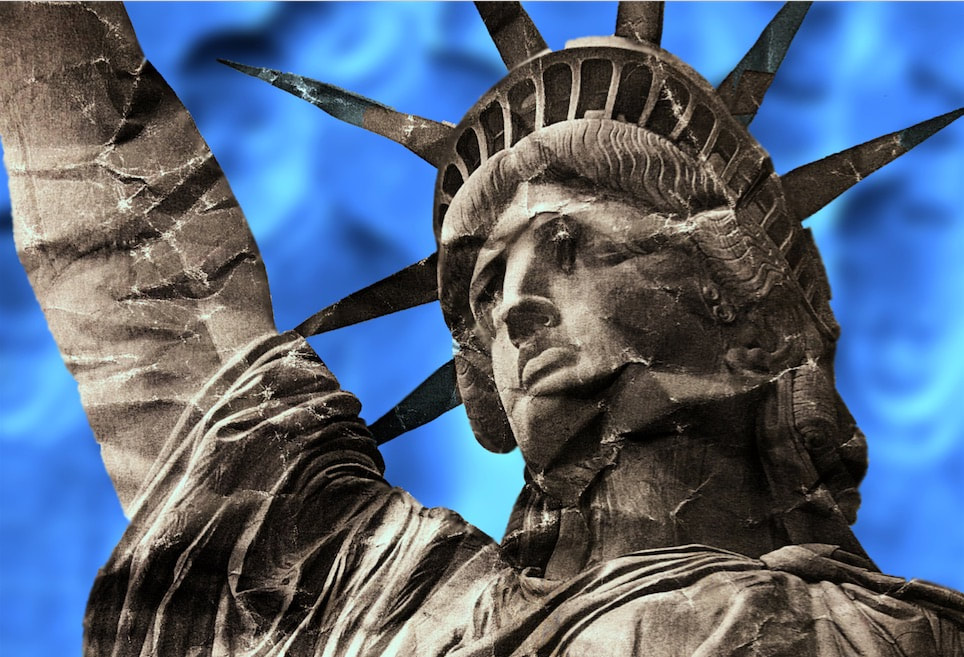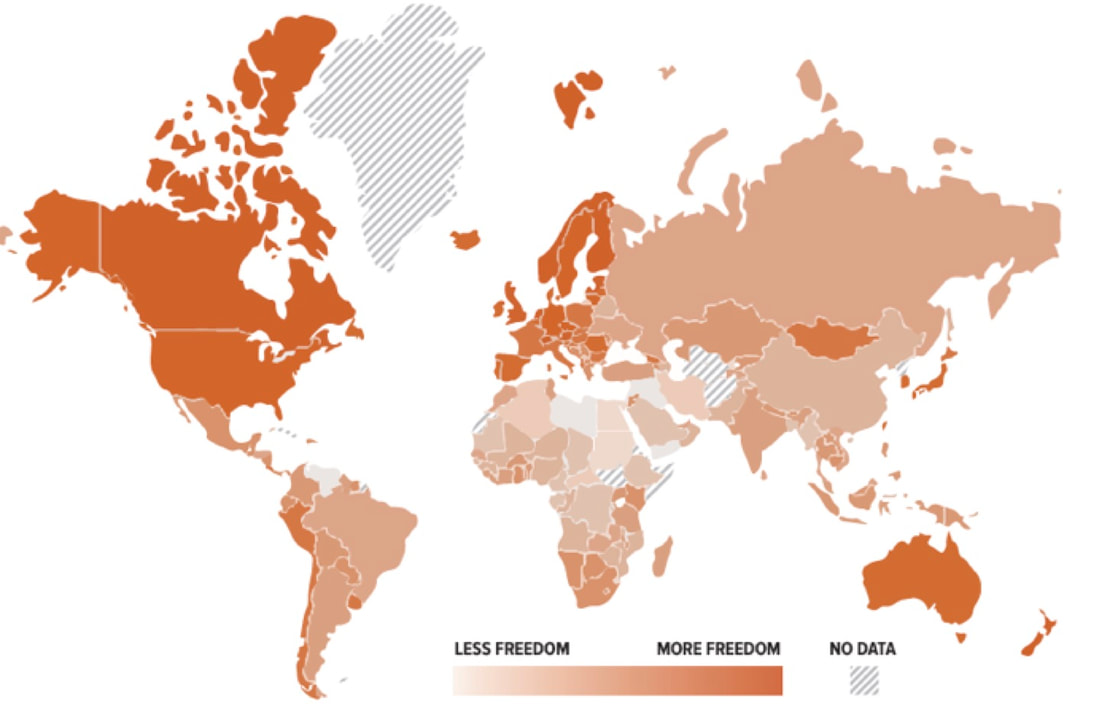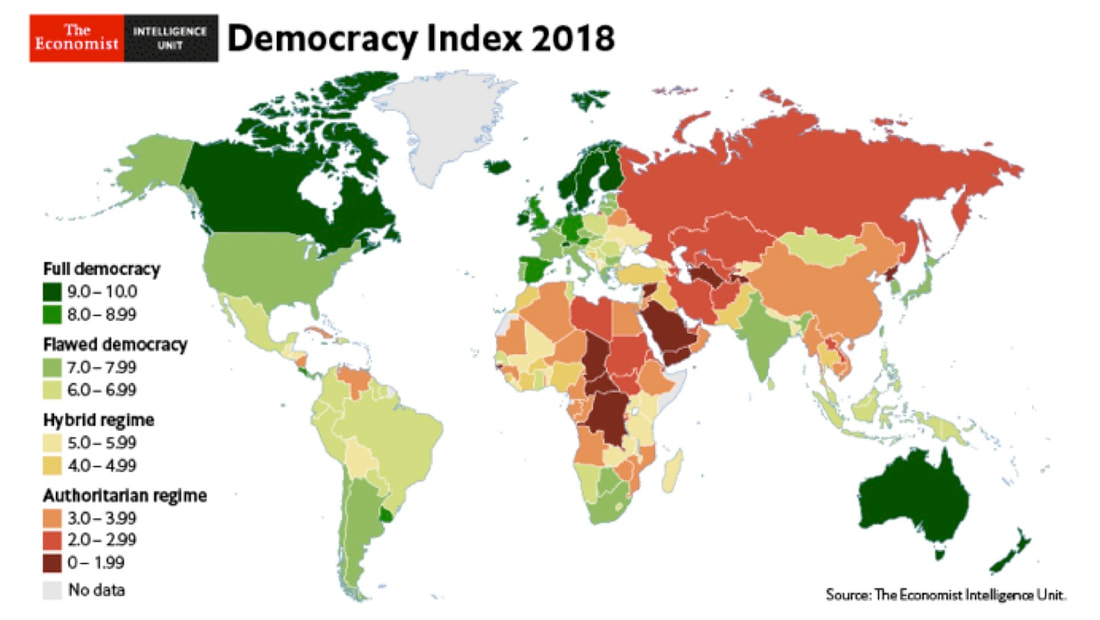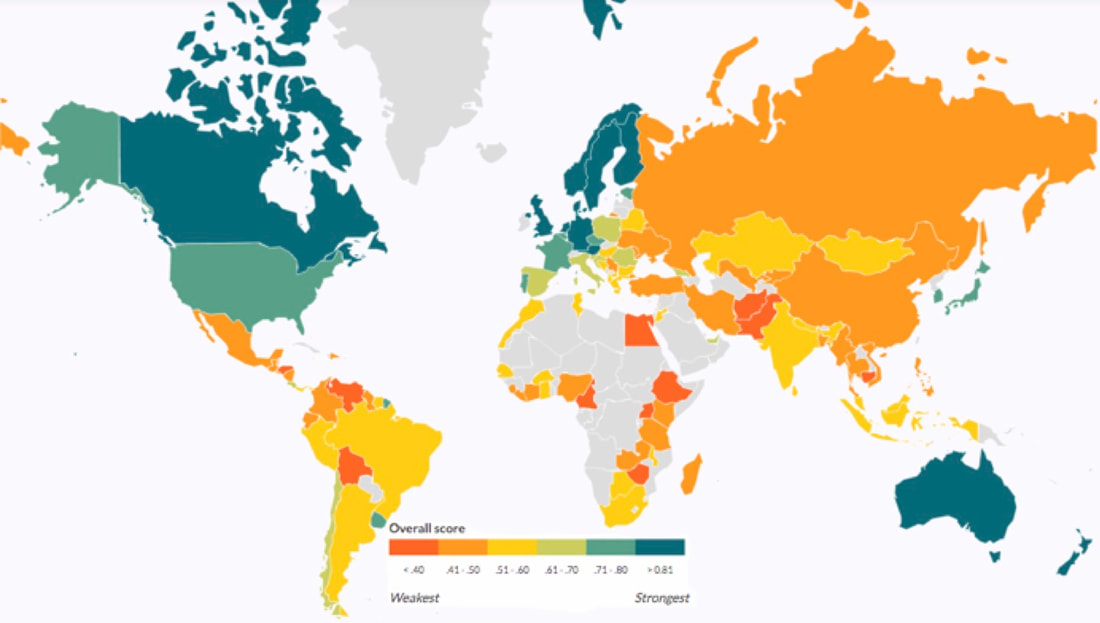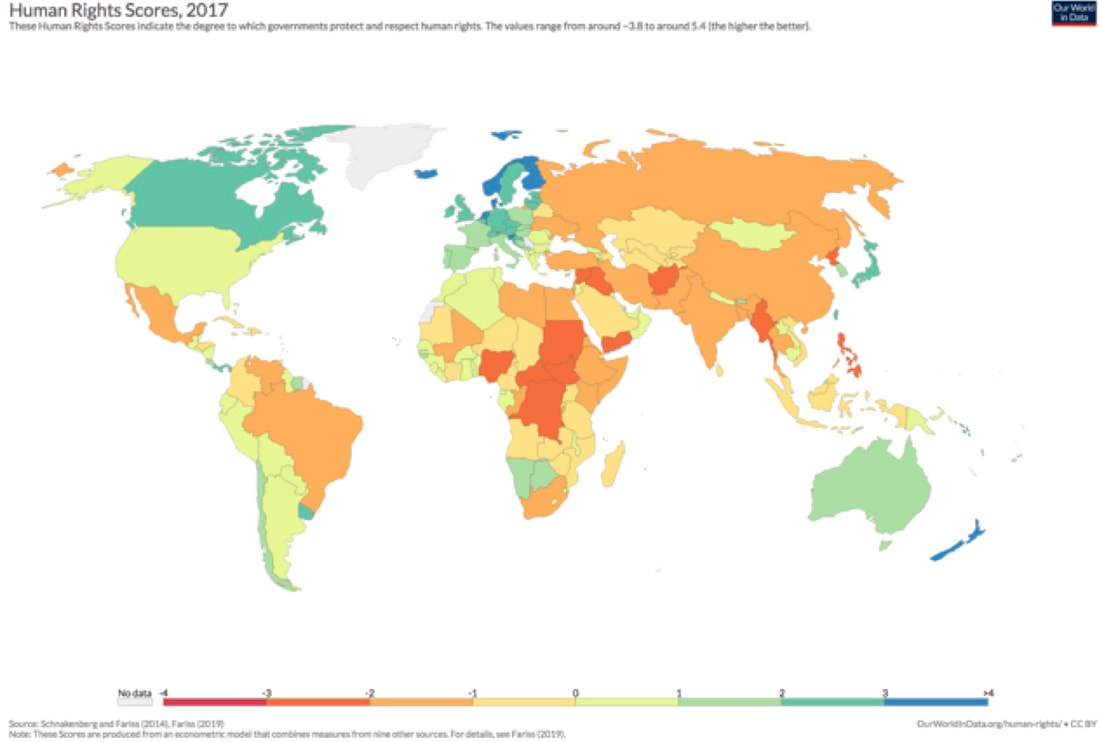|
Gloomy predictions "Much of what we loosely call the western world will not survive the twenty-first century, and much of it will effectively disappear within our lifetimes, including many if not most European countries" Prophesied the Canadian author Mark Steyn in 2006 in his book "America Alone: The End of the World As We Know It." His prediction were based upon bleak projections of demographic shifts, especially in Europe, as a consequence of the strong growth of the Muslim share of the future population. For the British historian Niall Ferguson the biggest threat to western civilization is a lack of faith in itself: "Today, as then, the biggest threat to western civilization is posed not by other civilizations, but by our own pusillanimity – and by the historical ignorance that feeds it." Gloomy predictions for the West aren't a recent phenomenon. In "Der Untergang des Abendlandes" (The decline of the West) Oswald Spengler prophesized the demise of western civilization just after World War One. A modern interpretation of Spengler's longwinded analysis sounds like this: "Once a Culture's aim is attained—its idea, its entire content of inner possibilities fulfilled and made actual—it suddenly hardens . It mortifies. Its blood congeals. Its creative forces breaks down. The fire in the soul dies. Life is fatigued. The society experiences more no more fullness but, instead poverty, coldness, emptiness, an intellectual chill, and void. Values built up and maintained within the Culture begin to fall away. A sweeping transvaluation, a rejection, a persistent nihilism remolds old forms, understands them otherwise, practices them in different ways. The society begets no more, but only reinterprets." (Brander, Staring into Chaos). During the hundred years after Spengler's prophecies the West has gone through a Second World War and a number of crises that might have led people to fear a decline of the West, but every time the West seems to have emerged stronger, more prosperous, and better for the majority of its population. Thus disproving Spengler’s prophecies time after time. What about the new gloomy predictions and prophecies? Can we find indications that the West and western civilization won't survive the 21. century? Signs of western weakness and pusillanimity as posing a threat to the West's survival? By the way what is the West, Occident or Abendland actually ...? What is the West? A well defined geographical area and if that is the case what area? Europe and North America minus Mexico? And what is Europe? Is it Europe from the Atlantic to the Ural, to Bosporus and the Mediterranean or what? What about Australia and News Zealand then, where would they belong? To understand what we mean by the West it is important not only to see the West as a geographic area, but as something that is also defined by shared general characteristics. For Stuart Hall the West is characterised by being "developed, industrialized, urbanized, capitalist, secular, and modern." Not enough in our opinion, that would fit modern China too. We would at the very least have to add criteria like democratic and characterised by the rule of law. Suddenly not only Australia and News Zealand, but also Israel, and perhaps even Asian countries like Japan, South Korea and Singapore might be seen as belonging to the West. Somewhere in most peoples minds we would suspect that whiteness plays a role, white Caucasian whiteness that is. Meaning that the core part of the West would be the countries characterised by having a majority white population. While this would be unfair to Japan, South Korea and Singapore, countries that might be characterised as western, they have certainly had a different historical trajectory. Meaning that we limit ourselves to an understanding of the West as having in a certain sense a shared history. The West against the Rest – the challenges In the attempt to see if there is any substance to gloomy predictions and prophecies, we shall analyse how the West holds up against the Rest. The Rest being the regions and countries that represent the greatest challenges for the West in areas that may have a decisive impact on the future of the West. This includes challenges related to: Liberty, democracy and rule of law Economic performance Scientific and technological competition Demographic upheavals Hegemonic shifts in power – military, political, ideological Climatic end of world scenarios In part one of The West against the Rest we only take up the first challenge: Liberty, democracy and the rule of law. Liberty and freedom The West has been characterised by the importance of liberty, democracy and the rule of law. Fairly abstract terms. If we want to hold up the West against the Rest in these areas we have know what they mean in praxis. Liberty How do we get to an operational understanding of liberty, or in often used parlance, freedom and liberty. It doesn't seem possible to find a simple and definitive definition of freedom and liberty, but here are some attempts: From John Locke's On Liberty (the short version): [T]he Idea of Liberty, is the Idea of a Power in any Agent to do or forbear any Action, according to the determination or thought of the mind, whereby either of them is preferred to the other. Isaiah Berlin has a two part definition of liberty: The negative, concerning the answer to the question: "What is the area within which the subject - a person or group of persons - is or should be left to do or be what he is able to do to, be, without interference by other persons?" The positive, concerning the answer to question: "What, or who, is the source of control or interference that can determine someone to do, or be, this rather than that?" Both Locke's and Berlin's attempt to define liberty contain aspects that most people in the West will connect with freedom and lack of coercion and external control., but neither Locke's nor Berlin's definitions can be considered operational enough to allow comparison of the West with the Rest. In daily parlance we operate loosely with terms like political freedom, personal freedom, freedom of expression, freedom of association, economic freedom and religious freedom. In the attempt to measure and compare the degree of freedom in the West with the Rest, we need more operational versions of these general conceptions. This is exactly what has been attempted in "The Human Freedom Index 2018." A single index is constructed from measurements and judgements in these fields: • Rule of Law • Security and Safety • Movement • Religion • Association, Assembly, and Civil Society • Expression and Information • Identity and Relationships • Size of Government • Legal System and Property Rights • Access to Sound Money • Freedom to Trade Internationally • Regulation of Credit, Labor, and Business This is used to create a combined index of general human freedom for 162 countries. Thus allowing a comparison of freedom in the world. (Human Freedom Index, Cato Institute): Not a very surprising picture. Precisely the areas we have defined as the West show the greatest measure of freedom (with Mongolia as an outlier). The Rest show a picture of relative lack of freedom. The worst picture is found in Africa, , parts of the Middle East, and for the moment at least Venezuela. Further up the scale we find Russia, India and China. With regard to personal and economic freedoms the western countries are found at top end of the scale compared to the rest of the world's countries. Of course may one argue that our measure of freedom and liberty is based upon a strictly western conception, meaning that the results we find are given beforehand. All is not well though. Not to be seen in the indices, are questions and controversies relating to religious freedom, threats to free speech, political correctness and wokeness (meaning especially aware of social problems such as racism and inequality). Democracy Again we have trouble finding a simple operational definition that can be used to make comparisons between the West and the Rest. Not surprisingly the term democracy stems from the Greek "δῆμος" (dêmos) meaning people (presumably native adult male residents of a polis) and Κράτος meaning power or rule. While the original meaning may have been different, its meaning today has become government by the people, as in The Declaration of Independence: "Governments are instituted among Men, deriving their just powers from the consent of the governed." In the "Stanford Encyclopaedia of Philosophy" democracy is defined very generally as "a method of group decision making characterized by a kind of equality among the participants at an essential stage of the collective decision making." It is to be noted that this definition doesn't say whether democracy is desirable or not. Arguments for the desirability of democracy may instead be found in John Stuarts Mill's writings " ... it is evident that the only government which can fully satisfy all the exigencies of the social state is one in which the whole people participate; that any participation, even in the smallest public function, is useful; that the participation should every where be as great as the general degree of improvement of the community will allow; and that nothing less can be ultimately desirable than the admission of all to a share in the sovereign power of the state. " Since not everyone can participate personally in any but some very minor portions of the public business, Mill sees representative government as the ideal form. Democracy is seen as the best mechanism for decision-making, as it represents a method for reaching the best decisions, involving as it does many people and sources of information and knowledge. This presumes that too much group-think can be avoided. The collective decision-making process in a democracy is dependent on the active participation of every single member, meaning it must expected that independent individuals think carefully and rationally about their contribution to the collective decision-making process. Amartya Sen also argues that democracy represents the best form of government, and point to a curious fact: "In the terrible history of famines in the world, no substantial famine has ever occurred in any independent and democratic country with a relative free press. We cannot find exceptions to this rule, no matter where we look." The argument here is that a democratic form of government and freedom of the press assures that the needs of everyone is taken into account. A sceptical mind might argue that Sen's assertion instead could be read like this: If there has been a famine, a real democracy and a free press hasn't existed. In the attempt to measure democracy of the West against the Rest there is a need for a much more operational definitions of what must be regarded as the necessary elements of a democracy. The Economist has made an attempt to provide such an operational definition in its "Democracy Index 2018". It based upon five categories: Electoral process and pluralism Civil liberties The functioning of government Political participation Political culture The index is then based upon 60 indicators representing the five categories. Countries are scored on a 10 point scale for each indicator. The separate scores are combined into a single index for each country. Based upon their scores countries are characterised as either Full democracies, Democracies with flaws, Hybrid regimes, or Authoritarian regimes. (The Economist). Again we see a picture in which the West is characterised by having either Full democracy or at least a democracy with some flaws, but according to this index we also find democracies with flaws in South America, South Africa, India , Indonesia and in the outlier Mongolia. Somewhat surprisingly the Economist Index shows that India with a combined score of 7.23 is rated as being more democratic than countries in Eastern Europe like Poland (6.67) and Hungary ( 6.63). Perhaps it shows how difficult it is to define a common yardstick for measuring democracy. Meaning that democracy with flaws covers a wide range of different flaws: "These countries also have free and fair elections and, even if there are problems (such as infringements on media freedom), basic civil liberties are respected. However, there are significant weaknesses in other aspects of democracy, including problems in governance, an underdeveloped political culture and low levels of political participation." (The Economist). Even with these reservations it is evident that the West can pride itself on having far higher scores in general on the democracy index than competitors like China and Russia. Again with the proviso , that the index is defined in accordance with historical western views of democracy and thus to certain degree not very surprising. The picture looks very bleak for the most of Africa, with the possible exception of South Africa (for the time being) and Botswana. What the index doesn't show is that democracy itself seem to be in crisis in the West, splitting the populations in western countries in pro and contra movements and protests on globalism vs. nationalism, more EU vs. less EU, pro Brexit vs. anti-Brexit, refugees and migrants welcome vs. closing the borders, multi-culti vs. uni-culture, religious fundamentalism vs. secularism, elite vs. populism, deplorables or pleps, identity movements vs. some kind of conservatism (derogatively called regressivism), duties vs. rights, democratic engagement vs. non-involvement, etc. Rule of law As early as Magna Charta from 1215 we find an article that my be seen as essential for the rule of law: "No freemen shall be taken or imprisoned or disseised or exiled or in any way destroyed, nor will we go upon him nor send upon him, except by the lawful judgment of his peers or by the law of the land." No single ruler or sovereign (king, dictator) shall set the law. Still, more is needed to create an operational definition of the "rule of law." The "World Justice Project" operates with four universal principles defining the rule of law. 1. Accountability The government as well as private actors are accountable under the law. 2. Just Laws The laws are clear, publicized, stable, and just; are applied evenly; and protect fundamental rights, including the security of persons and property and certain core human rights. 3. Open Government The processes by which the laws are enacted, administered, and enforced are accessible, fair, and efficient. 4. Accessible & Impartial Dispute Resolution Justice is delivered timely by competent, ethical, and independent representatives and neutrals who are accessible, have adequate resources, and reflect the makeup of the communities they serve. Based upon these principles a series of indicators are defined, that makes some form of measurement possible. Just as in the "Democracy Index" measures on these indicators are combined into a single index. The "Rule of Law Index 2017-2018" is supposed to make it possible to compare the degree to which we find the rule of law in the countries of the world. (World Justice Project). In general we find a similar picture to what we have seen before. The western countries score high on the index for rule of law. Top three are Scandinavian countries with Denmark number 1, Norway number 2 and Finland in third place. ( It should perhaps be noted that the author of this blog entry gave up his participation in the World of Justice Project panel tasked with evaluating Denmark on the many indicators, due to reservations with regard to the scoring methods). Again the scores of Eastern European countries like Poland and Hungary are rather mediocre. The worst scores on rule of law are found in Africa, The Middle East and parts of South America. Not much better are the indicies for China and Russia. The conception of the rule of law has its origin the West, just like the ideas of liberty and democracy, and again the West is confirmed in its self-perception. Seeing the marked differences between the West and the Rest with regard to freedom and liberty, democracy and rule of law, it might be tempting to ask if these concepts are so universal, as we in the West tend to believe, or if they perhaps only have validity in West where they originated, especially in what we may call the western "core." Human rights When the "United Nations" was created after the Second World War, a small group of people under the chairmanship of Eleanor Roosewelt had the task of writing a human rights proposal. For Eleanor Roosevelt "Concern for the preservation and promotion of human rights and fundamental freedoms stands at the heart of the United Nations. Its Charter is distinguished by its preoccupation with the rights and welfare of individual men and women" The "Universal Declaration of Human Rights" was proclaimed by the United Nations General Assembly in Paris on 10 December 1948. Using the universal view of human rights as the yardstick, how does the West compare to the Rest. In "The World in Data" we find a comparison of Human Rights Scores for 2017: The highest scoring countries are marked in blue and greenish, while low scores on human rights are marked in orange and brownish tones.
Again countries in the West achieves the highest scores together with a few other countries in Asia, Latin America, and Africa! Although the declaration is meant to be universal, some Muslim countries didn't see it that way. They criticized the declaration for being based upon Judeo-Christian values. Values standing in opposition to values in Islam. A declaration given by humans couldn't be more important than "binding divine commands." China also has another view of the rights of individual compared to society. The West congratulating itself ... What we have seen in part one points to western superiority in areas that the West regard as important. Again one might argue that the comparisons and indicies are mainly be based upon an ideal conception of western values, thus once more being self-confirming with regard to underlying western values. Is that a problem? Not for the West, as it shows that the concept of individual freedom, of democracy, rule of law and human rights, comcepts that the West hold dear, are indeed mainly found in the West. At least for now the West can thus congratulate itself of standing above the Rest with regard to its own views of what is essential. The self-gratulation may be premature though, as all is not well in the West, due the present internal crisis of democracy. In coming attempts to hold up the West against the Rest we shall see if western superiority is found in other areas, or if The West is losing out to the Rest. |
Author
Verner C. Petersen Archives
May 2024
|
